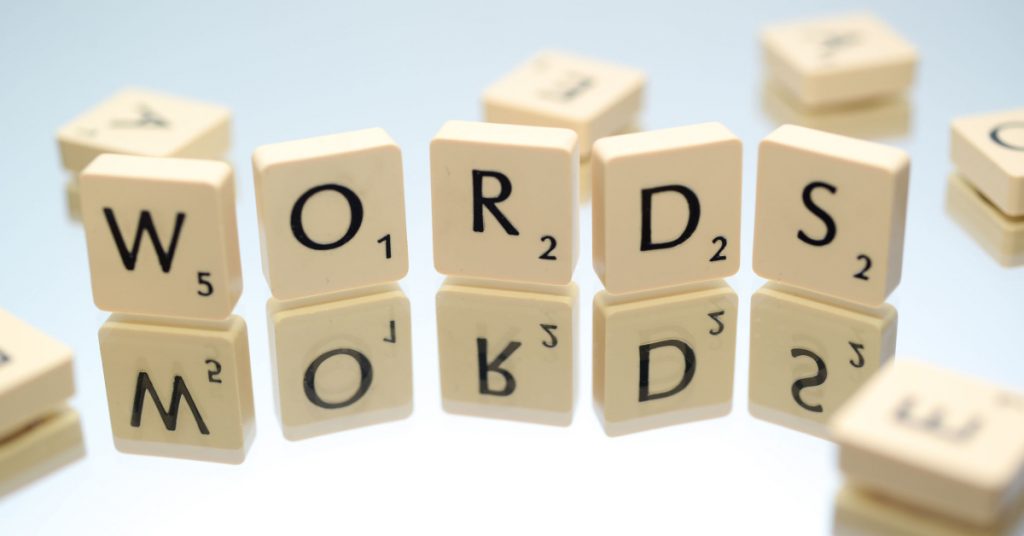“Love is like a mirror. When you love another,
You become his mirror and he becomes yours.”
– Leo Buscaglia, Love
What words do you use every day that tell another who you are, what you believe and what is dear to you?
What words do you use that lift another up or tear them down?
Words! They become the paint and paintbrushes to open the windows of our soul. They are the toolboxes of our brain used to convey our thoughts and innermost feelings.
We construct and sculpt conversations with creativity and imagination in order to share with another how we feel – to tell our stories. We want others to understand the difficulties we are going through and emphasize with our losses. We want them to be happy for us and rejoice with us our successes.
Words become the connecting tissue, linking old experiences with the new, melding together the past with what we are experiencing today. Words enable us to “see” what we don’t see, “feel” what we don’t feel, and truly share in the common human experience.
As a writer I am both intrigued and challenged with the selection, juggling and putting together of words that form the creation of my stories.
An author uses words to paint scenarios that you can easily “step” into. A novelist’s descriptive expressions of action can have you literally ducking from flying rocks or an assailant’s punches; while yet another writer writes with such heartbreaking intensity that we cry as though we ourselves had been emotionally wounded.
As a writer, the words and phrases I use can turn on “ah-ha” moments for a reader or highlight our shared commonality. They allow us to search our memory banks to more accurately reconstruct the past. Every day, I become more aware of the creative use of words people use to bring to life otherwise mundane events.
What words do you use?
As a counselor, I see the darker side of words – words that become weapons in the mouths of everyday people who have no clue that what they are saying are ripping apart another’s worth and esteem. We are witnesses to such brutal attacks in our malls and on our streets when we hear children verbally attacked in the guise of parenting or when we hear spiteful, degrading and subtle demeaning exchanges between couples.
We tear our neighbor’s reputation apart by our gossip, tarnishing their image to others. It isn’t behaviors we talk about, but how bad a person they are. We do not see the shattered remains of a self-worth in tatters when we talk behind their backs, or whisper how they do not fit in. How do I know? Because the bruised, scarred and sometimes still internally hemorrhaging victims darken the doorways of most therapists’ offices.
But perhaps even more tragic are the words we use on ourselves. Growing up we often heard how bad “we” were when it was our actions and thoughtless behaviors that were in question. We were no good. Would we never learn?
When things go wrong as adults, those words come back to remind us of just how incompetent we are. Sometimes, it is just an ongoing dialogue in the background of our mind as we go about our lives. As adults, they too come to therapists wondering what’s wrong with them.
As authors, we are commissioned to write about what we see and witness. How do we report on what we observe without doing more harm? How do we choose words that will encourage in the face of overwhelming challenges while looking truthfully at what we are facing?
Whether fiction or non-fiction, the words we use will strip away facades, challenge our vulnerabilities and insecurities. But they can also inspire hope and courage and faith.
Author, speaker, Christian, plumber, president, engineer, teacher – the words we use can become weapons of destruction or a vehicle of rescue, motivation and hope in whatever role we have in life.
They can attack or bind up wounds.
They can support another as he gets back on his feet or they can take away his dignity and integrity.
The words we use have incredible power. It’s up to each of us how we use them – in articles, in our books and our daily conversations.
Marlene Anderson
If you enjoyed this blog post, share with your friends.
Sign up today to receive the entire series: http://eepurl.com/baaiQ1
To Receive a Free Consultation for putting together a Personal Plan of Action for yourself, fill out the contact form beside this blog or send me an e-mail.
I am also available for speaking engagements, retreats or teaching workshops for your church, clubs or women’s groups on a variety of topics that affect our lives.


